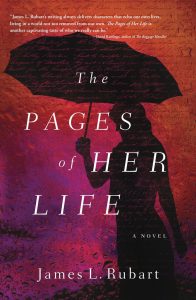by James L. Rubart, @jameslrubart

Do you have any strange habits when you write? If so, you’re far from alone:
- Mark Twain wrote lying down. (Same for George Orwell, Edith Wharton and Woody Allen. Truman Capote said he couldn’t even think, let alone write unless he was lying down.)
- Ernest Hemingway wrote standing up, along with Charles Dickens, Virginia Woolf, and Lewis Carroll.
- Lying Down? Not this author. Standing up? Nope. How ‘bout hanging upside down? Yes! Well, maybe not writing, but certainly that’s the cure for writer’s block, right? According to Dan Brown the answer is yes. (Inversion therapy.)
- Victor Hugo (avert your eyes for this one, kids) would tell his valet to take every stitch of his clothing so he couldn’t leave his home and he’d be forced to write. What do you think the better cure is for writer’s block? Hanging upside down, or no clothes?

- Drinking massive amounts of coffee – I know, I can hear you, “Jim, that’s not weird.” Yeah, true, but when you hit the 50 cups a day that feels a bit excessive. French novelist Honoré de Balzac did it on a regular basis. Apparently when he wrote his magnum opus, La Comedie Humaine he barely slept the entire time. How surprising.
- James Joyce is another lying downer, but on his stomach instead of back. With a large blue pencil. Dressed up in a white coat. Sometimes with crayons on cardboard. Wow, let’s move on now, shall we?
- Agatha Christie ate apples in the bathtub while brainstorming.
- Charles Dickens – Chuck carried a compass wherever he went and always slept facing north. Why? Because you’re more creative when you sleep facing the north of course.
- Ted Geisel (Dr. Seuss) wore one of his 300 hats when he got writers’ block. (I’m going with that method over hanging upside down and/or not wearing clothes.)
Me? I sit up, wear clothes, and have one, maybe two cups of coffee. Pretty normal. But … I do eat a constant stream of David’s Jumbo Sunflower seeds when I write a first draft. But everyone does that, don’t they?

How Do You Stand Up for Yourself When It Means Losing Everything? Allison Moore is making it. Barely. The Seattle architecture firm she started with her best friend is struggling, but at least they’re free from the games played by the corporate world. She’s gotten over her divorce. And while her dad’s recent passing is tough, their relationship had never been easy. Then the bomb drops. Her dad was living a secret life and left her mom in massive debt. As Allison scrambles to help her mom find a way out, she’s given a journal, anonymously, during a visit to her favorite coffee shop. The pressure to rescue her mom mounts, and Allison pours her fears and heartache into the journal. But then the unexplainable happens. The words in the journal, her words, begin to disappear. And new ones fill the empty spaces—words that force her to look at everything she knows about herself in a new light. Ignoring those words could cost her everything . . . but so could embracing them.

James L. Rubart is 28 years old, but lives trapped inside an older man’s body. He thinks he’s still young enough to water ski like a madman and dirt bike with his two grown sons. He’s the best-selling, Christy BOOK of the YEAR, CAROL, INSPY, and RT Book Reviews award winning author of ten novels and loves to send readers on journeys they’ll remember months after they finish one of his stories. He’s also a branding expert, audiobook narrator, co-host of the Novel Marketing podcast, and co-founder with his son, Taylor, of the Rubart Writing Academy. He lives with his amazing wife on a small lake in Washington state.